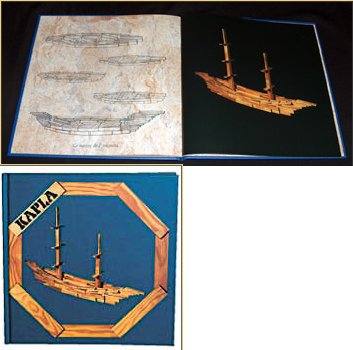
Haldeman-Julius said he first thought of printing cheap books for the masses after reading a copy of Oscar Wilde's Ballad of Reading Gaol when he was 15. Daughter of a prominent banking family in Girard, Kansas (population 2,500), and a niece of the prominent social worker Jane Addams, she supplied him with half of his last name and funds for his purchase of a financially struggling Socialist newspaper called the Appeal to Reason, which he eventually was forced to close although he continued with other journalistic efforts.

Haldeman-Julius, son of a Russian Jewish immigrant bookbinder in Philadelphia, worked at Socialist newspapers in New York and elsewhere before marrying Anna Marcet Haldeman in 1916. But the chapbooks also gave thrifty readers a broad range of literature at practically no cost: ancient and modern works, essays, fiction, philosophy, humor, biography, self-improvement manuals, and a variety of other works. Because they cost only a nickel apiece, the books represented the true reading taste of Americans, according to their publisher, Emanuel Haldeman-Julius (1889-1951), who referred to the thousands of titles he published in a small town in southeastern Kansas as "a university in print" and a "democracy of literature." Many of his best-selling books promised frank discussions of sex for an American public that was still deemed bashful about the question. Little Blue Books-compact, cheap, often carrying alluring titles or topics-became immensely successful in the United States in the 1920s and 1930s.


 0 kommentar(er)
0 kommentar(er)
